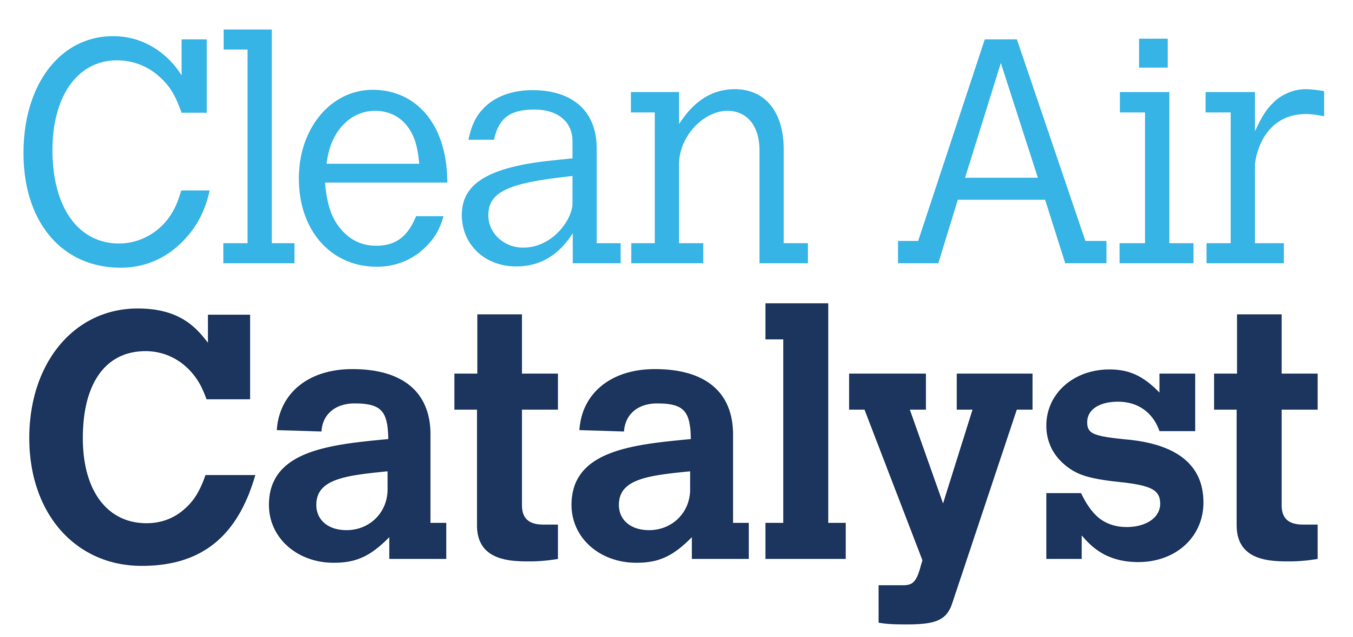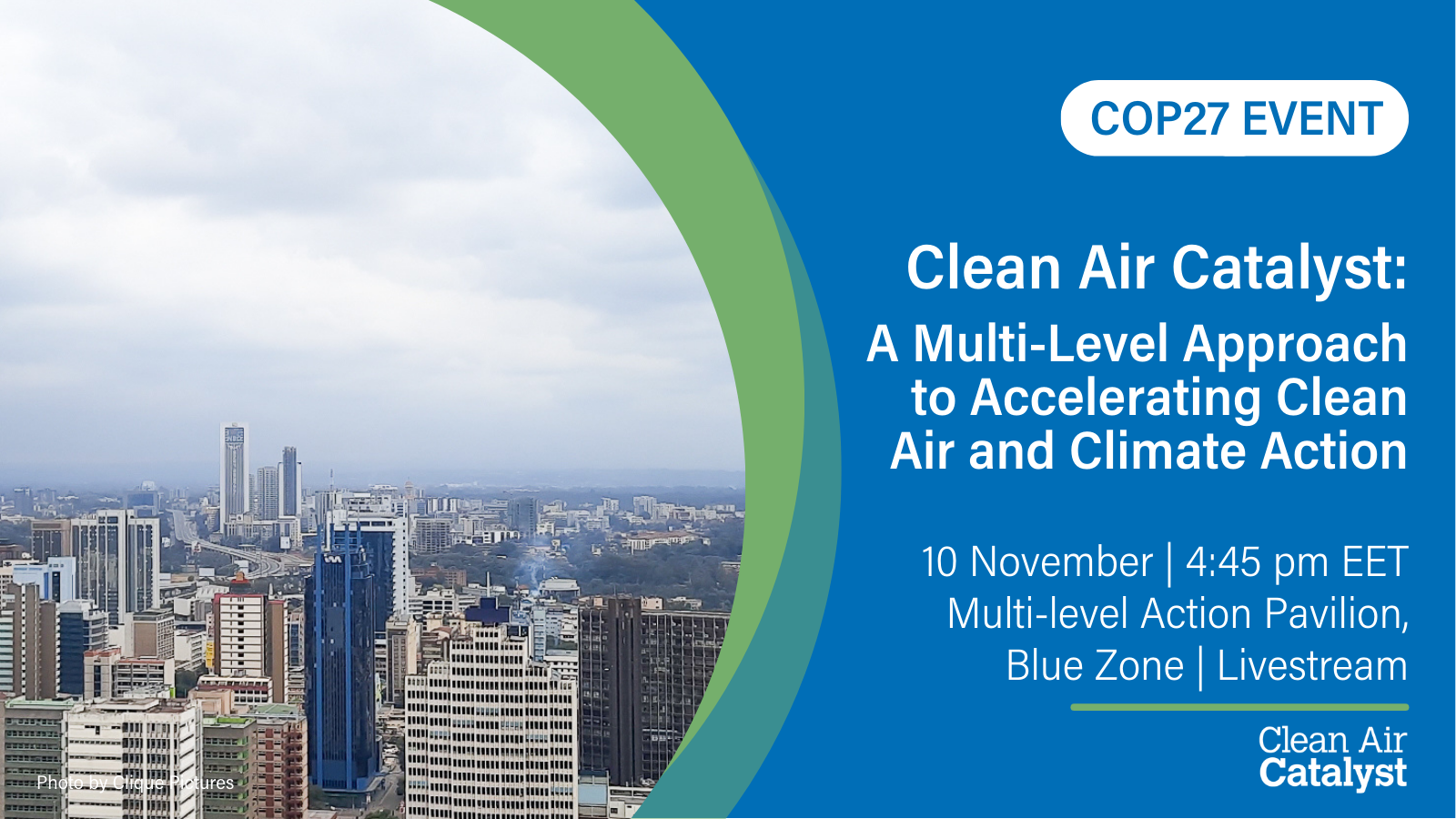Multi-level Action Pavilion, COP27 Blue Zone (organized by ICLEI)
Thursday, November 10th, 16:30-18:00 (local time)
This session highlighted the importance of integrated objectives and collaboration to the Clean Air Catalyst, a global partnership launched by the US Agency for International Development (USAID) in 2020. The five-year program, led by World Resources Institute (WRI) and Environmental Defense Fund (EDF), aims to accelerate locally tailored solutions to air pollution that also tackle climate change, improve human health, and address gender and income inequality. Representatives from Indore, India; Jakarta, Indonesia; and Nairobi, Kenya, shared their experiences in scaling up a multi-level approach in their cities.
Both air quality and climate action depend on the ability of local governments and organizations to mobilize domestic resources and external finance. Cities often have more control over sources of air and climate pollution because they are local. However, a tremendous gap exists between the resources that cities need and what they receive.
Research by the Coalition for Urban Transitions estimates that 37% of the total abatement potential of greenhouse gases in urban areas requires collaborative action among national, state and city governments, as well as collaboration across local departments responsible for transportation, industry, waste and public health. Clean Air Catalyst focuses on bringing the full range of stakeholders to the table, including community and private sector representatives, to build a shared understanding of the root causes of pollution and to seek more efficient and sustainable solutions.
The Catalyst partnership also seeks out non-traditional allies by expanding our engagement beyond the municipal authorities directly responsible for air quality and the environment. Mainstreaming climate and clean air action into the delivery of city services, infrastructure and procurement is a high priority.
Speakers in this session highlighted how they are pursuing joint air pollution control and GHG emission management strategies and working with vulnerable communities to ensure health and equity benefits to those most impacted by pollution. They also suggested strategies to fix the disconnect between local action and national climate commitments.
Keynote Speaker:
Ms. Genevieve Maricle, Senior Advisor, Climate and Environment, USAID
Panel:
Mr. Pushyamitra Bhargav, Mayor, Indore
Ms. Sarah Vogel, Senior VP of Health, Environmental Defense Fund
H.E Sakaja Arthur Johnson, Governor of Nairobi City County (invited)
Mr. John Kioli, Chairman Kenya Climate Change Working Group and Executive Director Green Africa Foundation
Mr. Koni Samadhi, WRI Indonesia Country Director
Moderator:
Mr. Michael Doust, World Resources Institute

